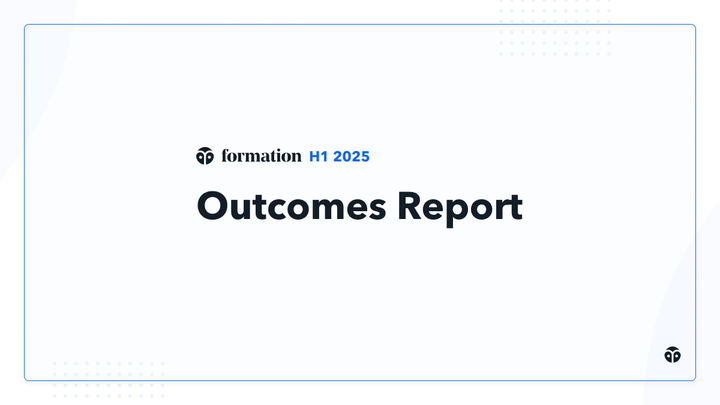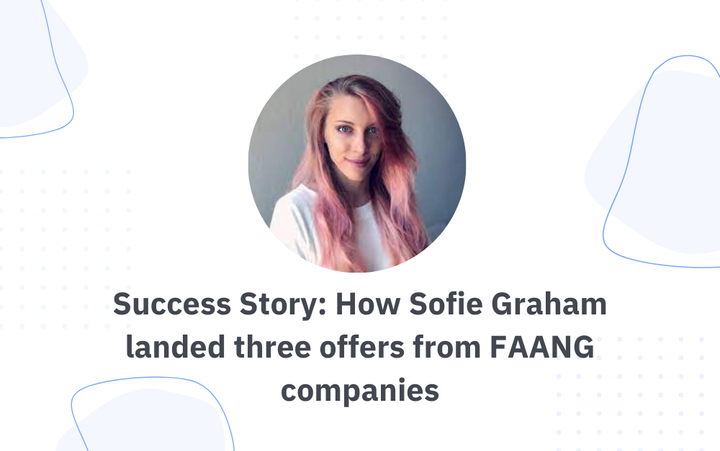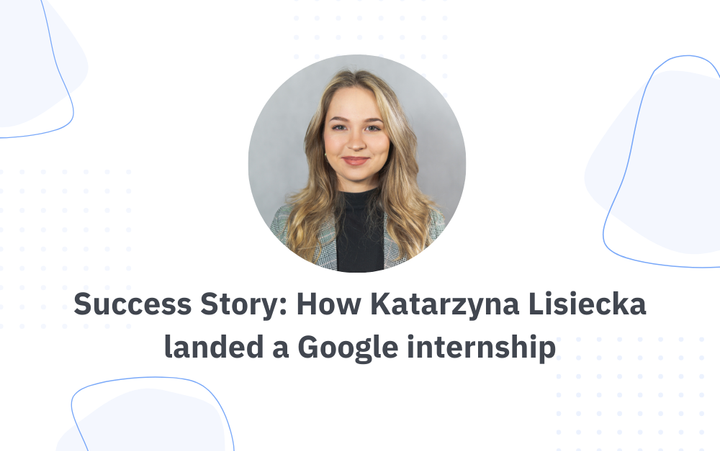Christina Tang: From 5th Grade Coder to Apple Software Engineer
Christina was told from a young age that companies needed more women in tech. But even after studying engineering, she found it difficult to break into the industry.

Welcome to Formation’s Fellow Spotlight, a blog series designed to introduce you to former Formation Fellows who have landed their dream jobs. Today we’ll meet Christina Tang, a Core Platform Software Engineer at Apple. Christina always wanted to pursue software engineering, but a “nontraditional” educational background made it difficult to get her resume through the door. Frustrated by where her career was heading, she turned to Formation. Here’s Christina’s journey to becoming a Core Platform Software Engineer at Apple.
What originally got you interested in software engineering?
In 5th grade, my friends and I got really into customizing HTML, JavaScript, and CSS. My site became a resource site for other friends looking to change their sites. From there, I joined all sorts of clubs and organizations. I co-founded a robotics club in high school, I was a Washington Aerospace Scholar, and the DawgBytes summer camp at UW CSE. I never really considered anything else as a career. I grew up thinking it would be easy to break into tech because there were so many outreach programs that said “we need more women in tech.”
What was your educational/professional background prior to Formation?
I earned a degree in Electrical Engineering with a concentration in Embedded Systems at the University of Washington. I originally wanted to get into the CS program, but it’s incredibly competitive at UW. I wanted a career in software engineering, so I took CS electives, persisted in software projects during my T-Mobile internship, and did my senior capstone in Machine Learning. After I graduated, I took a gap year.
After that, the first job I could get was as an Engineer at a medical device company. I noticed that people were doing repetitive tasks, so I started writing automation scripts. People noticed and that ended up becoming my full-time role. I grew increasingly frustrated because I had all the components and story to become a software engineer, but couldn’t get a role as a true software engineer.
I grew up thinking it would be easy to break into tech because there were so many outreach programs that said “we need more women in tech.”
What made you want to up-level your career?
I wasn’t truly being developed as a software engineer. I had a background in Embedded Systems but there was no movement toward putting me on embedded projects or converting me to full-time. I had almost no support, and no one reviewed my code except for one mentor who went through it casually with me. A lot of my peers were working at Microsoft or Amazon and they’d tell me I had what it took to work at those places, too. I wanted to invest in myself, so I thought about what I could do to make a big change.
...When I would apply for roles, I didn’t fit into either category of person they’d hire—they didn’t want to invest in me, or I wasn’t the person they were hiring for a specific purpose. I was haphazardly trying to study on my own with no success.
Why did you end up choosing Formation?
I had my senior SWE friends review my resume and they gave me the thumbs up, so I sought out the Blind list of top interview questions. But when I would apply for roles, I didn’t fit into either category of person they’d hire—they didn’t want to invest in me, or I wasn’t the person they were hiring for a specific purpose. I was haphazardly trying to study on my own with no success. I chose Formation because I was becoming too emotional and discouraged on my own, and felt I had nothing to lose and everything to gain.
I used to open Leetcode and just cry. With Formation, there was a community that helped me feel like I was less alone. The job hunt channel felt like I had my own squad supporting me every step of the way.
How did you work with the Mentors?
I could tell that they all cared and wanted to help; they weren’t just doing it as a side hustle or to stroke their own ego. It felt like they truly wanted me to succeed. Daniel had a big impact, and Clint was also great, too. He told me I was too humble to the point of self-deprecation, and that made a big impact on how I presented myself in interviews.
What did you think of the Fellowship as a whole?
I used to open Leetcode and just cry. With Formation, there was a community that helped me feel like I was less alone. The job hunt channel felt like I had my own squad supporting me every step of the way, down to like phrasing emails right. I'm not the most socially aware person, especially professionally, so the negotiation support was also super helpful to me. It gave me the push to feel like I could ask for more.
Formation really showed me what stood out about me, and there was a story worth telling to interviewers.
How did you measure your progress/success through the program?Preparing for interviews no longer seemed like a daunting task or something I wanted to procrastinate. It was a whole mindset shift. Formation really showed me what stood out about me, and there was a story worth telling to interviewers.
How did your interview skills improve with your Formation training?
I started understanding the purpose of interviews and what hiring managers look for. I started to see that every minute is a chance to tell a story that paints you as an engineer they’d want to hire. Interviewing is not just about jumping through hoops; you also have to do a trick at the same time and impress them. After I understood that, I saw that it wasn’t just about getting the right answer to a coding problem. It’s about showing best engineering practices through my thought process.
I didn’t have a CS degree or an elite software internship, but Formation made me see that I did belong in software engineering and I did have exactly what it takes to succeed.
How did Formation help you prepare for your new role?
It gave me so much more confidence in my skills as an engineer. It also gave me the confidence to ask more questions at work. Like, I now think of it as, “I need to know the answer to something to get this thing done, so I need to ask this question.” I didn’t have a CS degree or an elite software internship, but Formation made me see that I did belong in software engineering and I did have exactly what it takes to succeed.
What team are you on in your new role?
Core OS Platform Infrastructure & Tooling Engineer
Quick Fire Questions
First code you shipped?
Modifying HTML website templates
Proudest moment?
Getting this job. Everyone who knows me knows I’ve been really upset and anxious about my career for the past decade. Everyone just wanted me to be happy and do well. Getting this job made all the little things along the way mean something.
Everyone [at Formation] was really friendly and wanted to learn from each other. People are very open about talking about their career choices and paths. Preparing for interviews with other people really made a difference for me, too.
Biggest mistake?
Back in college, if I knew I really wanted a CS degree, I should’ve just transferred to a school where I could have earned a CS degree. Electrical engineering still felt right–I learned how computers are built from transistors to computer networks, and I never regret satisfying that curiosity.
Favorite group session?
I liked almost all of them. A mentor was doing a new dynamic programming series that made DP click more for me better than any other resource.
Biggest surprise about Formation?
I really enjoyed doing the Fellowship with everyone else at the same time. It made me more committed to learning. I wanted to show up to sessions prepared. Everyone was really friendly and wanted to learn from each other. People are very open about talking about their career choices and paths. Preparing for interviews with other people really made a difference for me, too.
Anything else you want to share?
Stay curious. Don’t dismiss topics that don’t seem relevant at first; there’s a reason it exists. There are jobs and reasons for the least popular programming languages and that might be what you find the most interesting. A lot of stuff in tech connects, and the little bit you know about IP addresses, for example, will come up one day. The small git issue on your personal project might come up at work, and the papers you read on machine learning, too. We don’t know our futures.
Interested in joining our Fellowship? Apply today to access your personalized, AI-powered roadmap and gain unlimited access to technical mentorship and mock interviews.



